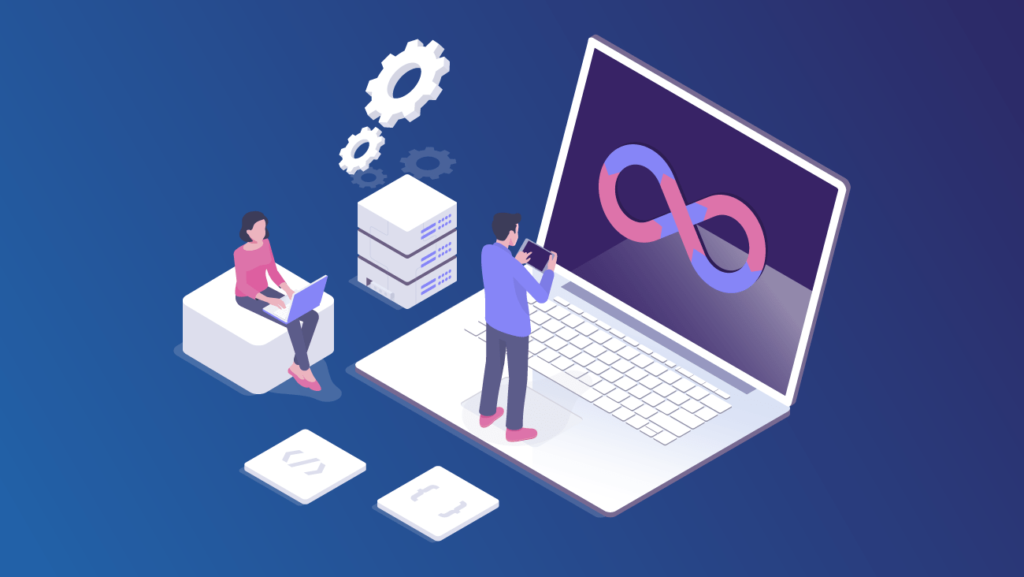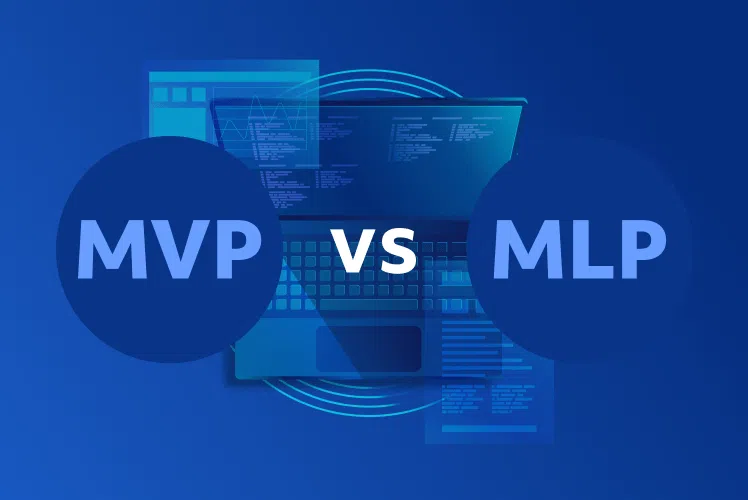Table of Contents
DevOps has become an essential extension of the agile methodology and now DevOps seems to be more and more popular. This methodology is aimed at optimizing and facilitating the whole production process, from coding to release, so no wonder companies are willing to make very attractive offers to knowledgeable DevOps engineers.
But who exactly is a DevOps engineer and how do you know whether you need to hire one? In this article, we discuss DevOps roles and responsibilities and the main reasons to assign such a person to a project.

What is DevOps?
In general, DevOps is a whole methodology that is aimed at bridging the gap between the development team and the IT operations team. One of the most common problems in the IT industry is that the two departments work in silos. As a result, it leads to delays in terms of product release, poor communication, frequent occurrence of errors, and similar issues.
Hence, the DevOps methodology was designed to unite the development and operations teams and therefore improve the overall work processes. The main principles and practices of DevOps include the facilitation of the communication between the development and the operations teams, continuous product improvement, continuous delivery of high-quality products.
Who is a DevOps engineer?
Though there is no universal definition of a DevOps engineer, we will come up with the one that seems the most descriptive. A DevOps engineer is a person who oversees the life cycle of a product, gathers all processes into a single system, and optimizes them with an aim to shorten the development and delivery processes and increase its efficiency at the same time.
It may sound complicated and it is complicated indeed. A DevOps engineer must have an excellent knowledge of many aspects of software development and IT operations, including:
- Coding basics,
- Knowledge of different operational systems,
- Knowledge of cloud providers and cloud services,
- Experience with CI/CD,
- Knowledge of different networks,
- Experience with visualization and containers,
- Experience with a script language (or few!).
All these thighs are essential for a good DevOps engineer since he will be the person responsible for finding the most efficient solution to a certain problem and optimizing the whole development process. To get an even better understanding, let’s look at the DevOps engineer’s main responsibilities.
The main responsibilities of a DevOps engineer
The list of responsibilities of a DevOps engineer is really extensive so we will now focus on the most important things that any DevOps specialist takes care of:
- Creation, planning, and testing of project infrastructure,
- Automation of processes and identification of such processes,
- Incident management: the resolution of any urgent tasks,
- Work with cloud solutions: minimization of risks and efficient management of cloud tools,
- Continuous integration in order to keep the code fresh and to check that the code works properly after it’s changed by any member of a team.
- Continuous delivery to automate deployment of new releases.
As you can see from the list above, all these responsibilities are united by a single goal – to maximally improve the efficiency of a work process while maintaining clear communication between the development and the operations team.
Top reasons why you need a DevOps engineer on your project
By now, you have already understood that a DevOps specialist removes the collisions between the development and the operations teams and contributes to increasing the efficiency of work processes. Now let’s look at the more specific and definite benefits of having a DevOps engineer on your team.
Continuous integration (CI) and Continuous Delivery (CD)
Continuous integration is a DevOps practice that puts emphasis on regular merging of the changes of the code to the central repository. After the code is merged, it is automatically run through the unit tests and builds. In this way, any error is immediately detected and developers receive an error-free code prepared for the release.
Based on the CI practice, the DevOps methodology introduced continuous delivery. Continuous delivery implies having all the code changes ready for the release with the help of automated tests. Under continuous delivery, all code changes are deployed to all environments (such as testing and production) after the build stage. In this way, developers can rest assured that all code changes are thoroughly validated and released.
The deployment of CI and CD significantly speeds up the development process and helps minimize errors and detect them in a more efficient manner. In this way, developers are able to release the product faster.
Speed of operation
As said above, DevOps methodology is focused on speeding up the development process. This is achieved not only by CI/CD but also by automating mundane manual tasks (such as tests, for example) and enabling transparent and smooth communication.
A DevOps engineer is concentrated on eliminating all possible drawbacks that prevent the team from quick delivery. Hence, if you have a DevOps engineer on your team, you can rest assured about the increased speed of the work process.
Cost reduction
In addition to a quicker and smoother work process, DevOps methodology also contributes to wiser resource allocation and cost reduction.
Since the DevOps engineer knows about the cloud tools, possible infrastructure options, and the best tools to use (not to mention the maintenance and updates management), it’s safe to say that your budget will be wisely allocated. So by assigning a DevOps engineer to a team, you minimize potential financial losses that are usually caused by sudden changes, the choice of the incorrect tools or infrastructure, and similar issues.
Increased productivity
Another important aspect to consider is the increased productivity of the team.
First, DevOps automates manual tasks that require lots of time, energy, and attention. This allows team members to focus on more important issues and come up with efficient ways of resolving them instead of combatting the same minor tasks over and over again.
Second, DevOps significantly improves communication between the team members. This leads to fewer misunderstandings and eliminates miscommunication. In this way, the atmosphere within the team improves and people become more focused and involved.
How to know when to hire a DevOps specialist
Without a doubt, the presence of a DevOps engineer on a project team leads to much better and faster results. But do you really need this specialist for every project and when should you hire one? Let’s discuss this
If you follow the agile methodology which requires lots of flexibility in terms of development, the adoption of DevOps would be the next logical step. As well, DevOps is great if you plan to have rapid and frequent release cycles.
To sum up, DevOps is highly suitable for supporting large-scale and long-term software development projects. A DevOps engineer is a valuable asset to any team that wishes to optimize the work process and deliver high-quality results in a timely and well-organized manner without any delays, errors, or issues.


Comments